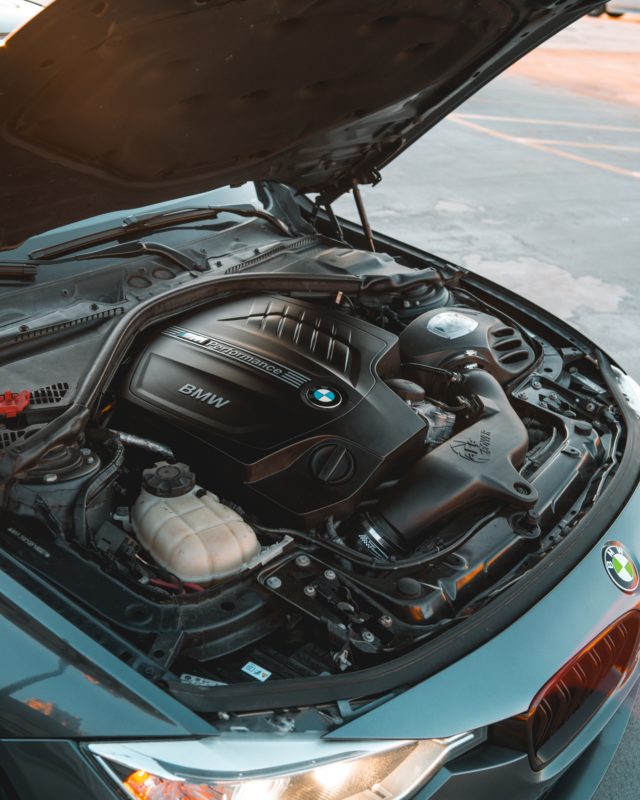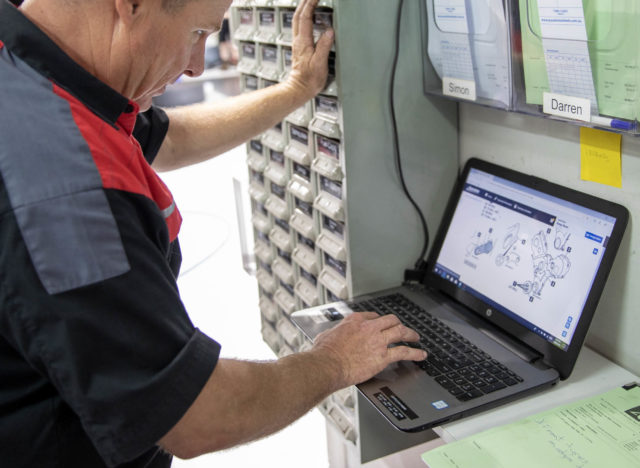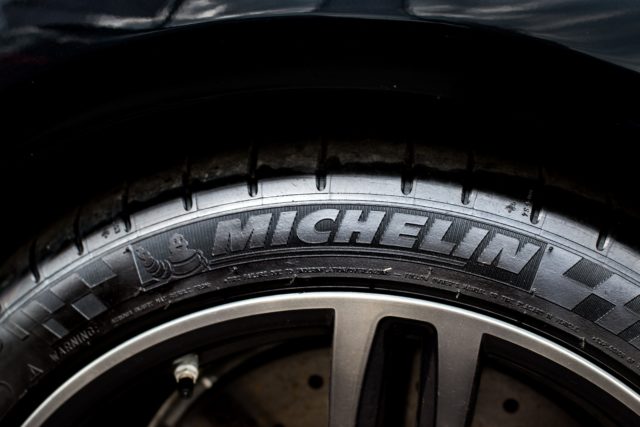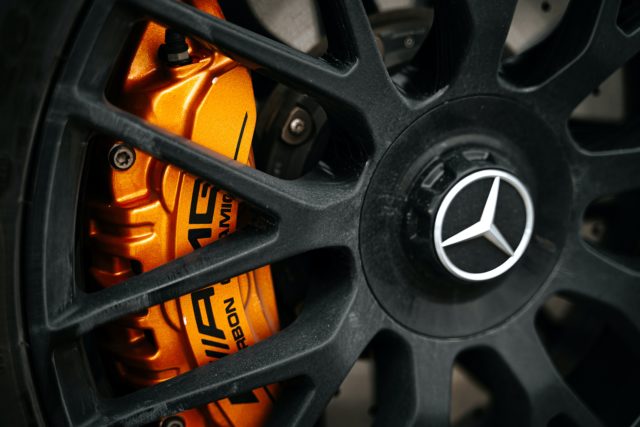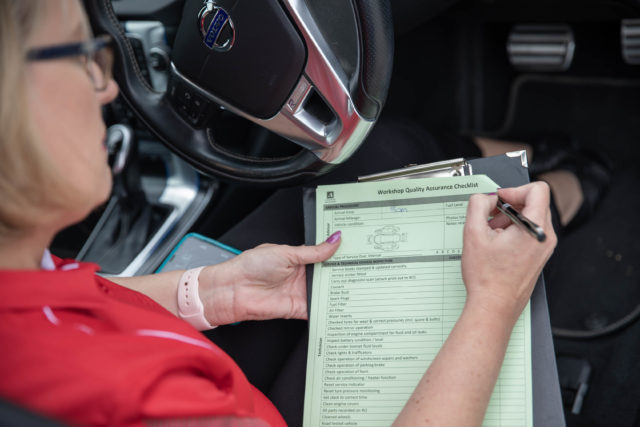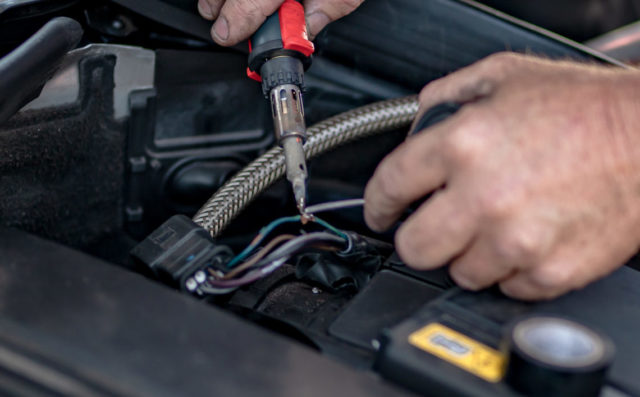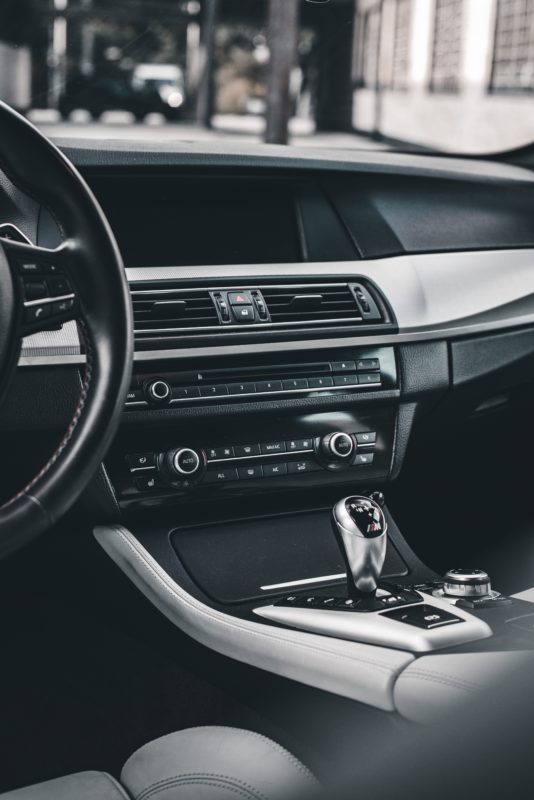
The 7 commandments to keep your vehicle healthy
Published
The 7 Commandments: How to maintain your car in between services
We all know how important it is to get your car serviced regularly. It helps save you time and money in the long run. But what most people aren’t aware of, is that maintaining your car in between services is just as essential. A healthy car is more efficient, so you’ll save money on fuel. You’re also more likely to identify problems early on, which will usually be more affordable to fix. Plus, maintaining your vehicle in between services will help it to have a better resale value. So, how do you keep your car healthy during the six months to a year that a mechanical repairer isn’t taking a look at it?
Here's our 7 commandments to keep your vehicle in shape:
1. Admire your tyreS
It seems simple, but you’d be surprised at the amount of people who neglect their tyres in between services. Caring for your tyres all year round will not only help you save money, but it will also make sure you’re safe on the road. No one loves replacing tyres sooner than we need to; along with correct pressures, we will save money on fuel.
Every so often, examine your tyres for slashes, bumpy wear or sidewall bulges. We also recommend using an accurate tyre pressure gauge once a month and before you do any really long drives. A tyre pressure gauge will check the inflation pressure of your tyres. Remember to check on them before you’ve driven your car and make sure the inflation pressure is in line with what’s recommended by the vehicle’s manufacturer (usually found in your owner’s manual or on the tyre chart on the inside of the driver's door), or by your trusted mechanical repairers. And don’t forget about your spare tyre! Check on it at the same time as you do your driving ones. You never know when you’ll need it.
2. Keep your eye on your dashboard
Have you ever seen a warning on your dashboard and chosen to ignore it because you had no idea what it meant? Don’t worry; it happens to the best of us. But making sure you’re paying attention to what your dashboard is trying to tell you is actually really important. If you don’t know what a message means, check your owner’s manual. There will usually be a guide about what each message means, and what you need to do. Some of the most common messages are about your engine, oil levels and braking systems. So, from now on, don’t ignore your dashboard! If it’s speaking to you, check your car manual and identify the issue, or better yet, contact the team to be guided on the next best steps. You and your car will feel better about it.
3. Become friends with your engine oil
Check your engine oil often (we recommend once a month for a car in good condition and more than that if your car needs its oil replaced regularly). When you’re checking your engine oil, your vehicle should be parked and on flat ground so you can get a precise reading. Make sure not to overfill, and if you do have a leak, book-it in as soon as possible.
4. Keep your car clean
This one’s not just for aesthetic reasons. Try to wash your car weekly, making sure you hose out the undercarriage and fender wells to remove dirt and road gravel. You can also prevent overheating by cleaning your radiator whenever you can. Do this by washing the outside of your radiator with detergent and getting rid of debris with a soft brush. We recommend breaking into the ‘Workin’ at the Car Wash’ song. But maybe that’s just us!
5. Check your exhaust system
If you’re game enough to make under-car inspections, this one can really make a difference. While your car is up on ramps, look for rusted-through exhaust parts that need replacing and loose clamps that need tightening. If you don’t want to get under your car, just listen out for changes in the exhaust while driving, and then pop on over to your trusted mechanical repairers if you hear anything abnormal.
6. Inspect your brakes & BRAKE FLUID
Your brakes are one of the most important safety features on your vehicle, so keeping an eye on them in between services is a smart move. Listen for any unusual noises like squeaking or grinding, which can indicate worn-out pads or other issues. Pay attention to how your car responds when you brake; if it feels spongy or if the brake pedal vibrates, it’s time for a check-up. Additionally, check your brake fluid level, as low fluid can reduce braking efficiency and may signal a leak or worn brake pads. Staying proactive with brake maintenance not only keeps you safe but can also prevent more costly repairs down the line.
7. Watch your battery
Does the the car sound slower to start, if you are noticing this, we recommend visiting us for a quick battery test. It's important to note that if a battery is weak, it will most likely fail when the season changes due to the temperature change. Every so often, check your battery’s cables and terminals to ensure they’re securely attached and corrosion-free. Most batteries are sealed and are maintenance-free.
So there you have it! Our 7 commandments for keeping your car spick-and-span in between maintenance. If you’re new to looking after a car or want bespoke advice on how to do it properly, the Accelerate Automotive team would love to help you out. We specialise in tailored car advice for each individual car (no cookie-cutter approaches here!). Feel free to reach out to the team.

